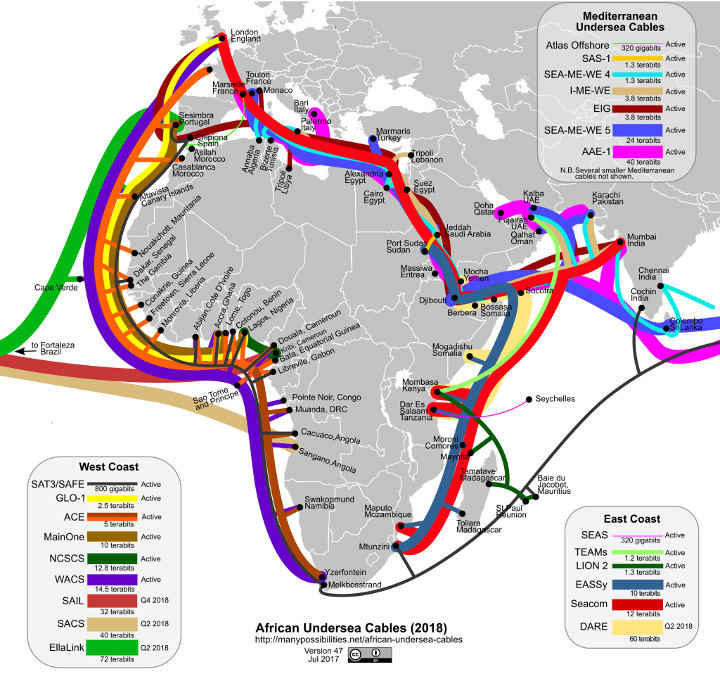The first internet fibre cable connecting Africa and South America, known as SACS (South Atlantic Cable System), has now landed in Brazil.
Angola Cables, which owns the undersea cable, announced that the installation of SACS will be made today (Friday, 23 Feb) in the city of Fortaleza, Brazil.
Landing and being installed, however, doesn’t mean it goes live immediately. The cable is entering its final phase of completion and is expected to go live by September this year.
The cable will have an initial capacity of 40Tbps and will basically provide direct internet connectivity between the two continents and onwards to the US.
Angola Cables says that the cable will reduce latency (the waiting time for a communication to be made via the internet) between the two continents fivefold. Apparently, from about 350 milliseconds to just over 60 milliseconds.
Even though there probably isn’t much existing traffic between Africa and South America right now, there have been suggestions that the cable could also drop latency between Africa and some parts of the US.
Angola Cables is 51% owned by the Angolan government. The company also has ownership in two other submarine cables – Monet and WACS – which connect to North America and Europe respectively.
For a summary of all the cables connecting Africa to the rest of the world, see image below, courtesy of Many Possibilities. Click for a higher resolution.

According to Many Possibilities, existing major undersea cables connecting Southern Africa to the rest of the world are:
- WACS – 14.5Tbps
- Seacom – 12 Tbps
- EASSy – 10 Tbps
- ACE – 5 Tbps

3 comments
God knows I have been waiting for this for ages. Finally we can have reasonable latency
well done! at least Angola is doing some progress! they also sent a satelite to space as well
What’s the fibre situation like in Zimbabwe? Can anyone recommend any recent articles on the subject? I’ve found some but they seem outdated.